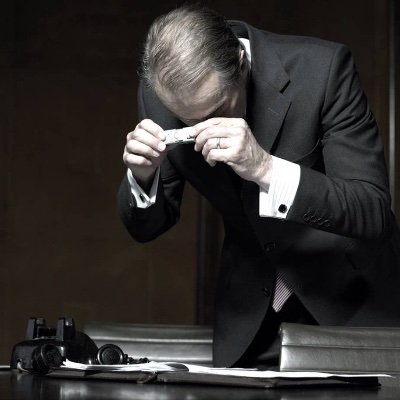 In human society, a spy is a necessity. Spying is prominent in the Old Testament and is sometimes named with fair justification as the "second oldest profession." The former Chinese wise man Sun Tzu spoke eloquently about the strategic value of counter-espionage 2500 years ago. As long as people live in environments that mimic each other, they steal secrets.
In human society, a spy is a necessity. Spying is prominent in the Old Testament and is sometimes named with fair justification as the "second oldest profession." The former Chinese wise man Sun Tzu spoke eloquently about the strategic value of counter-espionage 2500 years ago. As long as people live in environments that mimic each other, they steal secrets.
Francis Walsingham in Elizabethan England developed several new techniques of spying. He was a specialist in allowing decryption and forgery, Thomas Phelippes and Arthur Gregory, who could crack and restore seals without detection. His workers were also involved. As the Welsh expulsion Hugh Owen set up an intelligence service attempting to neutralize that in Walsingham, the Catholic exiles struck back.
A drastic expansion of spy operations emerged in the 18th century. It was wartime: two or more main powers were at war in nine years out of ten. Armies with the respective budgets became even more prominent. Equally, the sizes and sophistication of foreign ministries increased. National accounts were expanded to accommodate those expansions.
They found intelligent facilities with full-time employees and well-serving informants and agents. they found space. The service itself was more bureaucratized, and they sent out military attachments. They were bright, characteristic mid-ranking officials posted in international embassies. The attached diplomats assessed the strength, skills, and war plans of each capital's armies and navies. Over the late 19th century, new techniques were developed for spying and committed government intelligence services. The Great Game, a time that marked strategic rivalries and conflicts between the British Empire and the Russian empire across Central Asia, was an essential backdrop to this development.
They developed a monitoring, intelligence, and counterintelligence structure in the Indian Civil Service to counter Russian interests in the area and the possible danger posed to India's British position. Rudyard Kipling's famous Spy novel, Kim, popularized the presence of this shadowy conflict as a conflict in spy and intelligence which "never ceases, day or night." (The term that he popularized).
Though its initial methods were amateurish – British agents frequently portrayed themselves as botanists and archeologists with no convincement – a more extensive range of innovative strategies and programs have been adopted.
The setting up of dedicated intelligence organizations was related directly to imperial rivalries between major European forces and the acceleration of military technology growth.
The diplomatic system of military attachés (an official of the diplomatic service serving in a foreign country through a foreign embassy) was an early military intelligence source, which was widely distributed in Europe after the Crimean war. While it was officially confined to supplying information received publicly, they quickly used it for a covert gathering of classified information and Espionage and de facto spy rings in some situations.